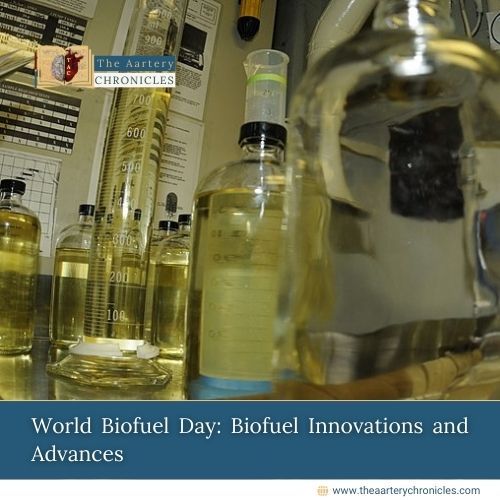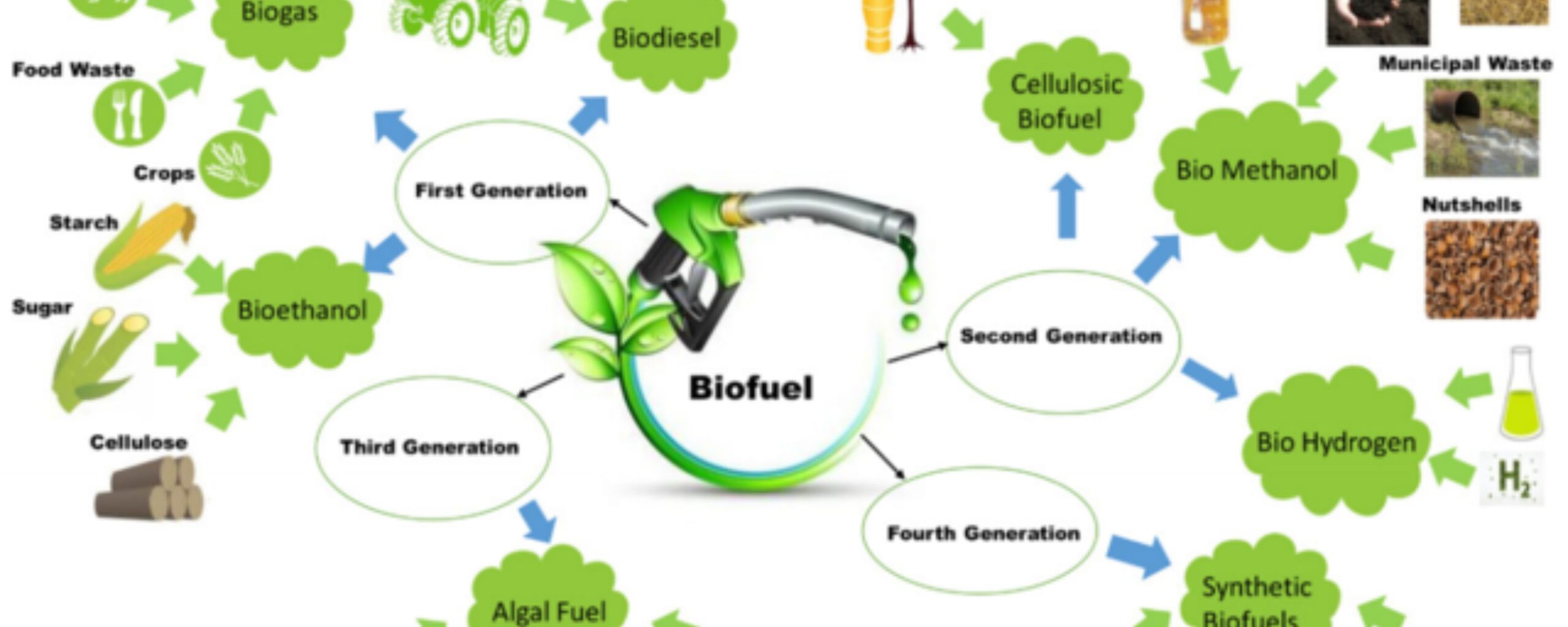

World Biofuel Day: Biofuel Innovations and Advances
World Biofuel Day
Every year, it is celebrated on the 10th of August to raise awareness about the importance of biofuels as alternative and sustainable fuels in the place of traditional fossil fuels.
World Biofuel Day marks Sir Rudolf Diesel’s breakthrough achievement in 1893 when he demonstrated the potential of vegetable oil as an alternative fuel. The commemoration stresses biofuels’ significance, environmental benefits, and their vital role in reducing emissions of greenhouse gases.
World Biofuel Day: Theme 2024
This year’s theme is ‘Sustainable Biofuels: Fuelling a Greener Future.’ The theme highlights the importance and sustainability of biofuels, promoting their use to reduce dependence on fossil fuels. It emphasizes the prospects in biofuel technology, research, and policies that work towards reducing carbon emissions. The theme encourages the adoption of renewable and sustainable energy sources for a greener future.
How Are Biofuels Produced?
Several processes facilitate the conversion of biomass to energy-rich sustainable fuel. Biotechnological techniques significantly improve these processes making the production of biofuel sustainable and efficient. Some important aspects of biofuel production include:
1. Choosing a feedstock
Biofuels can be generated from a range of feedstocks that include:
- First Generation: Crops that are edible such as sugarcane and corn
- Second Generation: Inedible biomass including forest waste, energy crops, and waste residues from agriculture
- Third Generation: Mainly microbes and algae that have increased oil yields and which can be grown in diverse environmental conditions.
2. Conversion of Biomass to Biofuel
Steps involved in Biofuel production include:
- Pre-treatment of biomass: The complex structures of biomass are broken down to form sugars that are readily accessible
- Fermentation: Microbes mainly yeast, or bacteria, facilitate fermentation, converting sugars to ethanol and other alcohols
- Transesterification: Biodiesel is produced when oils from animal and plant fats are chemically reacted with alcohol.

Innovative approaches in biofuel production
1. Genetic Engineering
- Genetic engineering allows to genetically modify microbes and plants to improve their growth rate, yield, pest resistance, and other traits.
- This can significantly improve the concentration of biofuel precursors in feedstock.
2. Enzyme development
- Developing enzymes that allow the breakdown of complex biomass into fermentable sugars.
- New and improved enzymes enhance the efficiency of biomass conversion resulting in high yields and reduced costs of production.
- Attempts are ongoing to identify novel enzymes with the help of metagenomic techniques from microbial communities, that will enhance production efficiency.
3. Algal Biofuels
- Algae are believed to have high oil content along with a rapid rate of growth hence they are considered a promising source for biofuel production.
- Optimizing various strains of algae to increase oil yield will efficiently help in enhancing growth conditions and biofuel production.
4. Optimizing Microbial Fermentation
- With the techniques of metabolic engineering optimization of microbes can be achieved to enhance their efficiency in converting sugars to sustainable biofuels.
- This also involves improving their tolerance to biofuels of higher concentrations essential for economic growth.
Advantages of Biofuels
Biofuels hold immense importance in today’s energy landscape as they are potential solutions for efficiently managing challenges related to the environment, energy security and the economy.
Environmental Benefits
- Biofuels can considerably reduce emissions of greenhouse gases in comparison with fossil fuels as they are mainly produced from organic materials.
- Biofuels promote clean and complete combustion which significantly lowers toxic pollutants like carbon monoxide contributing to improved air quality and healthy public outcomes.
Energy Security
- Biofuels can potentially reduce our dependence on fossil fuels over time with diverse energy sources. With the lower need to import fossil fuels, national security will also be enhanced.
- Fossil fuels are finite, biofuels on the other hand are produced from renewable organic sources hence they are sustainable. The generation of biofuels can be sustained indefinitely.
Economic aspects
- Biofuel production can promote the agriculture sector by creating the demand for agricultural and crop residues which will lead to enhanced farm income and development in the rural areas.
- Opportunities in various sectors such as processing, agriculture, and distribution will contribute to all over economic growth.
Conclusion
Biofuels not only provide cleaner, sustainable alternatives to fossil fuels but they also promote economic growth and agricultural development. Future advancements in this field along with technological breakthroughs will further improve the sustainability, and efficiency of production and, contribute to reducing carbon emissions. World Biofuel Day reminds us about the vital potential of biofuels in replacing fossil fuels paving the way for a prosperous, sustainable, and environment-friendly future.









